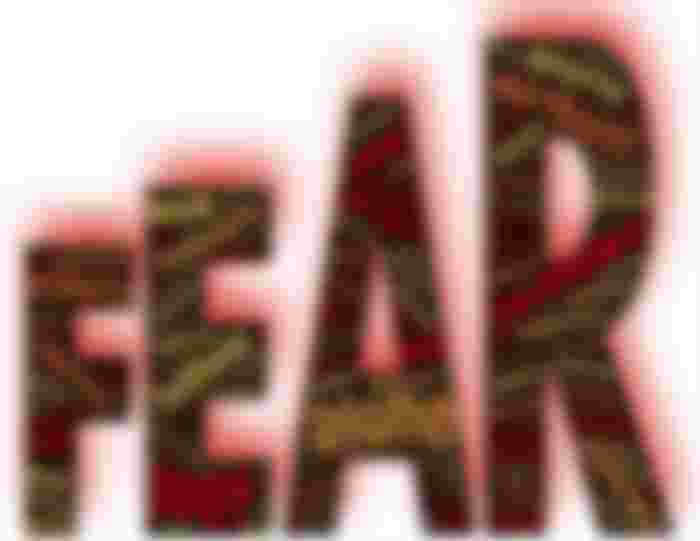There are plenty of theories about how curiosity plays a role in anxiety. What does science have to say about it? How does anxiety affect cognitive performance? Does anxiety cause curiosity, or is it the other way around? People have been struggling with anxiety for a long time. But if it becomes so intense, so disruptive, so all-consuming, it's no longer just a chore to get through or a passing mood to contend with. In this article, we learn about some of the different forms of anxiety and how curiosity can help with them.

Psychological And Physiological Effects Of Anxiety
Anxiety is a common and important part of the human experience. It keeps us alert and on the watch for danger, and gets our brains and bodies ready for fight or flight. But when anxiety becomes excessive or lasts too long, it can have a number of negative effects on a person. In this section, we'll focus on the psychological and physiological effects of anxiety how it makes you think, feel, and act.
In psychology, anxiety is most often associated with fear. As a result of a stimulus, that evokes fear in us, like a snake, for example, we feel a variety of unpleasant physiological changes like rapid heart rate and shallow breathing. But the word "anxiety" can also refer to a more general state of apprehension.
When we're anxious, we experience unpleasant physical changes along with the fear, but not necessarily because of a specific external stimulus. The snake might be in the bushes, because we're anxious about something else; for example, we're in the middle of a math test and the prospect of failing it is very real. Anxiety can interfere with other bodily functions, too, like digestion and immune response.
So What Causes Anxiety?
There are a variety of different things. In general, though, anxiety is a response to a perceived threat. While there is often a clear external stimulus, that triggers the anxiety, such as the snake or the math test, more often than not, the source of the anxiety is something inside the person's own mind. For example, a social anxiety disorder could develop, because of an unreasonable fear of other people, even in the absence of any real threat. These imagined threats, or fears as they are sometimes called, can be so all-consuming, that they interfere with the sufferer's everyday life.
Anxiety can take different forms. In the broadest sense, anxiety is a feeling of nervousness, apprehension, or worry. This kind of anxiety is called generalized anxiety. As a milder form, it can also be referred to as stress, which is the tension and uneasiness, that builds up inside us as a result of perceived danger. But the different kinds of anxiety aren't the only thing, that can make us feel anxious.
There are also less obvious causes of stress, like having to go into a math class and perform badly, because of a lack of preparation. These kinds of performance-based anxieties can be particularly difficult to deal with, because the cause is often unclear and we can't just ask the student to relax, for example. A performance-based anxiety disorder can affect us in a similar way to the more common generalized forms, like social anxiety and simple phobias.
But those disorders are characterized by an excessive fear of a particular object, behavior, or situation, performance-based anxieties typically involve an excessive fear of performing poorly. In other words, we're perfectly capable of coping with our fears, or at least recognizing our mistakes, but the fear itself interferes with our ability to function.
Treatments For Anxiety
There are two major branches of treatment for anxiety. The first is to change the behavior, that is causing the anxiety in the first place. This means either reducing the stimulus, that is inducing the anxiety or alternatively, changing the way in which we respond to the stimulus. For example, if we have a fear of spiders, it will not be resolved by simply ignoring the spider. This kind of exposure therapy is the most effective when it comes to less-common disorders, such as specific phobias or OCD.
But there are also a wide variety of different medications, that can be useful in treating certain kinds of anxiety disorders, like generalized anxiety disorder or social anxiety disorder. When it comes to these more "mild" disorders, the newer drugs are not always more effective than the older, but there is a particular class of drugs, that tend to be more effective in the majority of cases. These are the drugs, that have a more narrow therapeutic window, but are more effective, than other drugs in treating a wide variety of different disorders.
Coping Anxiety In Every Day Life

In addition to understanding the causes and the effects, we can also learn how to cope with anxiety. How can we identify its source, so that we can address it directly?
One way to make sure that we don't let our own fears get the best of us is to recognize, that our fears are probably unrealistic. Consider the common fear of snakes. In most cases, if we are exposed to a snake we will not die. The fear is absolutely excessive and irrational, but that doesn't make it any easier to get over.
Often, when we are faced with a situation, that could produce an intense amount of anxiety, we find it helpful to step back and look at the situation dispassionately. In other words, if we are being chased by a monster and there's nowhere to hide, then our fear will probably get the best of us. But if we can slow down and examine the situation rationally, it may be that the fear is unfounded.
A good way to think about it is to consider whether the feared outcome really is all that bad. If the feared event actually results in a loss of life, then obviously it is very bad. But what does that really mean? Is a single lost life really worth dying from a heart attack because you were afraid you might miss a train?
It may be unrealistic to expect, that we will never suffer from anxiety, but it is possible to hold the fear at a level, that is tolerable. In other words, we can learn to live with our fears.
Never Underestimate The Power Of Curiosity
Curiosity makes us feel like we're on the edge of something, even if we know there is nothing to be afraid of. In other words, the fear of the unknown is sometimes worse, than the reality itself. "What if it's worse than we think?" is a common response when curiosity strikes fear.
But the truth is, we always underestimate the power of curiosity. Fear is a very effective tool of the mind, but it also has a way of blinding us to the obvious truth that is staring us in the face.
When was the last time you looked at a fearful situation without first categorizing it as something to be afraid of? You probably didn't even think about it, you just acted on the basis of how you felt. The fear just took over and that fear was the most rational response, in that case. But what if the feared response is irrational in the present case? Reality has a way of biting back.
There are two ways that we can respond to this.
One is to decide, that we will not respond to the reality, but rather, deny its very existence. This is a response, that many people with anxiety have. The idea of facing reality in any way that might be uncomfortable or upsetting is avoided.
The other is to actually confront the reality. If we refuse to accept the possibility, then the fear will not be there, and we can avoid the danger. But if we go forward with a plan to confront the monster, then the fear will be there to greet us, but at least we will not be its prey.

Lead image source: https://pixabay.com/illustrations/eyes-psychology-anxiety-disorder-730751/





Nice article sir. Anxiety has so many unimaginable effect on the human body when its too much. Like it causes someone to have low self esteem, it also causes panic attack and so much things we can't mention all.